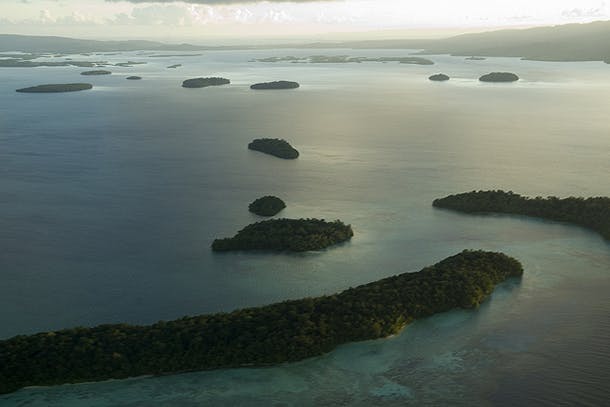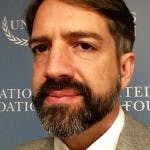
Each of us has a role to play to deliver on the Sustainable Development Goals adopted by world leaders last September. The good news is that there are exemplary innovators and entrepreneurs at all levels of society who are already leading the way. The United Nations Foundation, along with its partners, is helping to lift up these exceptional individuals and catalyze community efforts to get them the resources they need to drive change.
On Wednesday, September 21, on the sidelines of the United Nations General Assembly, the second annual Solutions Summit will turn attention to the individuals and organizations around the world that are developing innovative solutions to implement the global goals. Held at UN headquarters, the Solutions Summit seeks to match innovative solutions with the strategic advice, networks, and partners they need to scale up their efforts and increase impact.
After receiving hundreds of applications from around the world, the following solutions, and the innovators behind them, were selected through a competitive and transparent selection process led by the UN Non-Governmental Liaison Service.
DareWin – How Whales Can Save the Ocean
Innovator: Fabrice Schnöller | Website: http://www.darewin.org
Whales play a major role in the health of the oceanic ecosystem from which all life on earth depends. DareWin aims is to bring to light the complex language of the whales to unlock some of the mysteries of these highly evolved, large-brained, sentient life forms. With advanced filming, recording, and free diving techniques, DareWin translates their language and brings the depth, awareness, and global importance of these animals to millions of people across the globe.
Syria Tracker – A Project of Humanitarian Tracker
Innovator: Hend Alhinnawi | Website: http://www.humanitariantracker.org/
In March of 2011, conflict broke out in Syria. With an information void on the ground, a group of concerned citizens created Syria Tracker, a crowd sourced online platform that allows people in Syria to share what was happening to and around them. Individuals can submit reports, videos, and pictures through Syria Tracker’s website, Twitter, or e-mail. Over the past five years, thousands of reports have been received covering everything from human rights violations to disease outbreaks and relief needs. The technology platform and supporting network of global experts and volunteers can provide early detection, situation awareness, and response systems. This allows for quicker response time, capacity to collect crucial information during crises and disasters, and more efficient humanitarian response.
AIME – Artificial Intelligence in Medical Epidemiology
Innovator: Rainier Mallol | Website: http://aime.life
The incidence of mosquito-borne diseases has grown dramatically around the world in recent decades. These diseases are not only a continuously increasing health risk, but they are also responsible for an enormous economic impact in the nations where they happen. AIME’s platform provides critical information for disease prediction and outbreak management via machine learning and artificial intelligence with the goal to geo-locate the next disease outbreak up to three months before it happens. AIME can predict the outbreaks of Dengue, Zika, and Chikungunya with more than 85% accuracy through an algorithm that uses more than 11 different variable clusters, like weather data, construction data, dengue death data and other points to reach this level of accuracy. The algorithm then is able to graph circles that appear over a map, outlining the future outbreaks up to 400 meters in radius. Now public health officials can take informed decisions on how to allocate resources, control the disease, and keep the public informed. With success in Malaysia, the Philippines and in Rio de Janeiro, AIME will now focus on the prediction of TB and HIV outbreaks.
BenBen – Blockchain Powered Land Services in Ghana
Innovator: Emmanuel Noah | Website: http://benben.com.gh
In Ghana, land records are paper-based and easily lost, destroyed, or corrupted. Without trusted land records, financial institutions are unable to provide loans, individuals cannot prove ownership, and land investment stays stagnant. Based in Accra, Ghana, BenBen is an interactive map platform and census database that aims to tackle the inefficiencies of land administration to promote investment, reduce poverty, and encourage transparent natural-resource management. BenBen leverages Blockchain technology to provide governments, financial institutions, realtors, and the general public instant access to property information through an easy-to-use searchable interface.
Ayzh – Low Cost Kits for Women’s Health
Innovator: Zubaida Bai | Website: http://www.ayzh.com
Female refugees and migrants continue to suffer from a lack of access to essential health products around menstruation and childbirth, which endangers their health, education, and safety. Ayzh has an innovative model for developing and distributing simple, low-cost products that meet the unique needs of women in low-resource settings, targeting the entire continuum of reproductive, maternal, newborn, child, and adolescent health. Ayzh’s signature “kit style” product gives health care workers and mothers access to simple tools that improve health, survival, and wellbeing. Their model also provides employment and economic opportunity to women who assemble their products. Ayzh approaches sustainability with a market-based business model that integrates business, technological, and social innovation. Since starting sales in 2012, Ayzh has sold more than 250,000 products to more than 300 institutions in 15 countries.
doctHERS – Digital Health Platform for Female Doctors
Innovator: Asher Hasan | Website: http://www.docthers.com
Three out of every four women graduate medical school in Pakistan only to be excluded from the health workforce due to sociocultural barriers; there are over 50,000 qualified female doctors in Pakistan who are not participating in the workforce. In addition, 90% of the urban slum and rural population in Pakistan lacks access to affordable, quality medical health care. Confronted by their inaccessibility to qualified doctors, millions of marginalized women face unnecessarily high maternal and child death rates. DoctHERs is the world’s first exclusive network of home-based, female doctors that creates inclusive employment for women in emerging markets while delivering high-quality health care. DoctHERs leverages a digital health platform that connects female doctors to millions of underserved patients using local, trusted intermediaries such as trained nurses, midwives, and community health promoters in urban slums and remote rural areas. DoctHERs has launched 8 telemedicine clinics, catering to over 15,000 patients in just over 12 months while generating over $140,000 in operating revenue.
REFUNITE – A Low-Bandwidth Family Reunification Search Tool
Innovator: Ida Jeng | Website: https://refunite.org
In the past, individuals who were unable to locate their family members and had exhausted personal networks could only turn to international humanitarian agencies, needing to physically travel to offices to fill out lengthy forms and waiting for months or years without updates. REFUNITE set out to change this in 2008 with the first-ever global, web-based search tool for refugees. Now with 500,000 refugees looking for family members through the platform, REFUNITE is currently the largest user-driven family tracing platform in the world. Today, REFUNITE registers 100,000 refugees and displaced persons annually. With little more than access to a low-cost mobile phone – and in high-need countries, even without internet access – refugees and displaced people can search for their missing loved ones with the click of a button. REFUNITE offers a simple mobile platform through which displaced people can register, search, and reconnect. The service is accessible via a smartphone or any basic feature phone and is free of charge. Users can register via SMS, USSD, free hotlines or via the mobile site m.refunite.org. To date REFUNITE has successfully reconnected 20,176 family members and are in a strong position to reach even more separated families.
Atmocean – Greening the Coastal Deserts
Innovator: Christopher White | Website: atmocean.com
Carbon emissions and the impacts of those emissions are starting to have a strong effect on the environment. While reducing emissions is one side of the story, the other is carbon sequestration, which is the draw-down of carbon already in the atmosphere. Atmocean leverages the natural power of the ocean to green arid lands and freshwater to rural coastal areas. The multi-pronged solution provides affordable water for coastal communities around the world. It starts offshore with wave energy converters that operate ocean pumps driven by waves that move pressurized seawater to an onshore desalination plant where the sea water can be converted into fresh water. The fresh water is then delivered to drip irrigation pipe networks, creating new agricultural cropland in the rural coastal desert regions. With approximately 10,000 km of coastline in South America, Australia, Africa, and Central America available for greening projects there is a real opportunity to reduce C02 levels.
Ecoloo – Sustainable Toilets for All
Innovator: Zuraina Zahrain | Website: http://www.ecoloogroup.com
Ecoloo believes it has found a solution to the world’s pressing issues related to water, sanitation, hygiene, and the environment that will lead to socioeconomic prosperity and sustainable living. Ecoloo is a sustainable toilet system that uses a special formulated bacterial culture to treat human waste and transform it into natural fertilizer. The Ecoloo is made of a 2-tier chamber: the upper chamber is where human waste including urine is collected and treated by specially formulated bacterial culture while the lower chamber is where the organic fertilizer in liquid form is rendered to by gravity using no water to flush. The bacterial culture dissolves the solid waste and turns this waste and other degradable waste into ashes in this water free environment within just three to four days, while the nitrification process that is built in the system converts the liquid waste into an odor-free fertilizer. In nearly 10 years, Ecoloos have been installed in more than 16 countries. Plans are underway to begin producing up to 1 million toilets per year.
SafeCity – Making Cities Safer for Women
ElsaMarie DSilva | Website: http://safecity.in
UN Women states that one in three women face sexual assault in their lifetimes, yet 80% of women and girls do not talk about abuse for multiple reasons. This under-reporting of the issue leads to the unrepresentative official statistics. To mitigate the lack of reporting and create safer public spaces, SafeCity crowdsources personal stories of sexual harassment and abuse in public spaces via a web app. Women and girls can report their experience anonymously, allowing them to read other’s experiences. The anonymous data is aggregated as hot spots on an online map indicating trends at the neighborhood level. The information is then used by local groups and administrators to identify factors behind the abusive behavior and enables activists to develop solutions and strategies to address the root causes of sexual assault. SafeCity also runs or provides the training and infrastructure for campaigns to raise awareness in communities, campuses, and work environments.
The Solutions Summit is led by the UN Foundation, the UN Non-Governmental Liaison Service, and the Global Innovation Exchange, in collaboration with the SDG Philanthropy Platform, the UN Foundation Global Entrepreneurs Council, and the Sustainable Development Solutions Network, with an open invitation for governments and other partners to join. Special thanks goes to the 2016 Solutions Summit sponsors: Qualcomm, MasterCard, and Guggenheim Partners.
[UN Photo: Eskinder Debebe]



 View All Blog Posts
View All Blog Posts